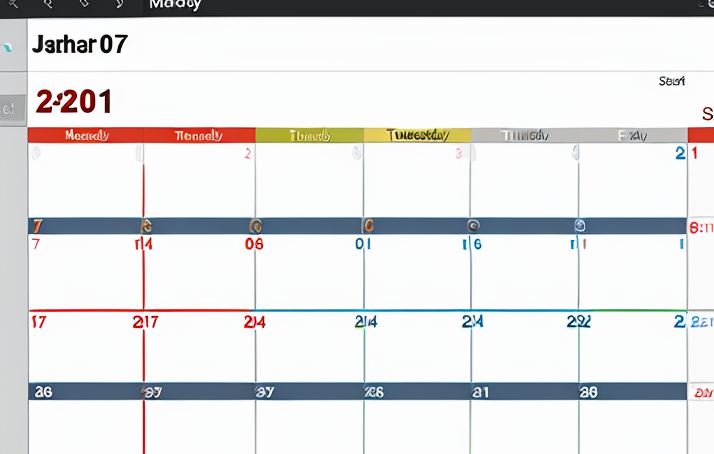Are Human Resources Jobs In Demand?
Human resources has changed a lot over the years. What started as admin tasks evolved. HR is now a key player in many organizations. Leaders once saw HR as just a support function. Now, they view HR as a strategic partner. This shift comes with complexity and depth.
Are You a Good Fit for This Job?
Many firms faced challenges during economic changes. They had to adapt fast. Jerry, a HR manager, recalls facing a hiring crisis in tech. He had to find candidates quickly. He attended job fairs and sought talent online. This need illustrated the changing demand for skilled HR. Now, HR must think creatively.
In the past, HR mainly handled hiring and payroll. Today, HR is involved in shaping company culture. For instance, a company may hire HR to boost teamwork. The role now requires understanding people and businesses. It’s not just about rules anymore.
Not only skills in recruitment matter. Today, emotional intelligence plays a big role. Companies seek HR pros who can connect with employees. This skill helps build trust and improve morale.
- Data Analytics: Understanding data is critical now.
- Communication: Clear speaking and writing are essential.
- Adaptability: The workplace changes rapidly. HR must keep up.
Moreover, leaders stress the importance of inclusivity. An inclusive culture attracts diverse talent. Mary, a leader in HR, says, “We must create spaces where everyone feels valued.” She’s right. Many organizations now focus on diversity in hiring.
For those curious about how HR initiatives can benefit their careers, it’s essential to understand the support that HR provides to employees. You can explore this further in our discussion about the role of HR in employee assistance and growth.
Technology also influences HR’s evolution. Automated systems handle repetitive tasks. This shift allows HR to focus on strategy. With the rise of remote work, virtual communication tools have also changed hiring processes.
Insights from experts highlight several trends. Many believe HR is essential for growth. Globalization makes HR roles even more vital. Companies, they say, must navigate many cultures and markets.
As HR continues to evolve, the skills needed shift too. The demand for HR professionals will likely increase. Future HR leaders should expect challenges and opportunities ahead. As HR adapts, it become central to company success. With each innovation, HR’s role deepens and expands.
Why Are HR Jobs in Demand? A Closer Look

Technology changes workplace landscapes. In 2021, 60% of companies implemented new HR software. This made tracking employee performance easier and more efficient. Also, many firms use AI to aid in recruitment. Job seekers encounter chatbots and online assessments. These advancements create a higher demand for knowledgeable HR staff.
Human resources is an essential part of business today. Globalization demands skilled workers everywhere. Companies seek talent from various countries and cultures. This creates a need for HR professionals who understand these complexities. Strong HR teams can handle diverse groups effectively.
- First, HR manages the employee experience.
- Second, data analytics has become increasingly important.
- Third, businesses prioritize diversity and inclusion.
Shifting workplace cultures matter too. Remote work trends have grown significantly. More than 30% of employees now work from home at least part-time. HR must adapt to these changes. They help design policies that support flexible work. Such adjustments keep employees happy and engaged.
In conclusion, modern HR roles are vital. They support global hiring, advocate for technology use, and navigate workforce dynamics. As workplaces continue to evolve, HR will play a key role in shaping them. Demand for these professionals will only increase. The challenge to adapt is great, but the rewards are greater.
Work From Anywhere Opportunities:
Additionally, organizations face legal challenges. Employment laws are complex and vary by location. A trained HR professional ensures compliance. Without proper guidance, companies risk costly fines. Every business needs a solid HR framework to avoid these pitfalls.
The Skills of Tomorrow’s HR Professionals
Human Resources is changing fast. Some skills have become very important. Today, let’s dive into the skills shaping the future of HR.
Key Skills
- Emotional Intelligence: This skills allows HR pros to understand emotions. It helps in resolving conflicts. Employees feel valued when leaders listen.
- Data Analytics: Analyzing data is a powerful tool. It helps in making better decisions. For example, companies use data to improve hiring processes.
- Adaptability: The workplace is constantly changing. HR must adapt quickly. Those who embrace changes thrive.
Emotional intelligence connects with employee trust. This skill improves teamwork. Teams are more productive when they trust each other. Data analytics trends allow HR to predict turnover rates. Companies save money by keeping staff longer. Patterns in data reveal useful employee insights.
Adaptability is crucial in uncertain times. HR experts create solutions to new problems. Adapting fuels creativity in the workplace. Another vital skill is communication. HR must convey clear messages. Good communication leads to a better workplace culture.
- Strategic Thinking: This skill helps HR see the big picture. It informs long-term planning.
- Tech Savvy: Knowing software tools is necessary. Many HR functions are now online.
- Problem-Solving: HR faces many challenges. Creative solutions lead to successful outcomes.
Modern HR professionals often utilize technology. They engage with employees through platforms. This enhances connections, even in remote settings. When HR uses data effectively, it improves hiring. Good hires lead to reduced costs. Companies realize profits from quality hires.
HR skills must grow along with the industry. Leaders should seek training and education. Investing in skills pays off.
The Future of HR: Trends to Watch

Changes are reshaping the field of human resources. Employers and job seekers should pay attention. First, AI integration is significant. Machines can analyze data. They help make better decisions. HR teams can focus on important tasks instead of repetitive chores.
Diversity and inclusion initiatives are increasingly important. They are not just buzzwords. Companies with diverse teams perform better. This also attracts more candidates. A workplace that values diversity fosters creativity and innovation.
- AI can streamline recruitment processes.
- Virtual reality assists in training.
- Analytics helps track employee performance.
Remote work is now normal, not an exception. Many workers prefer the flexibility it brings. Companies offer this option to attract talent. Customers can access better services when staff work from anywhere. And, workers gain work-life balance.
As these trends develop, the skills required for HR roles must shift, too. Emotional intelligence is crucial. Understanding employee needs leads to happier teams. Data functionality is vital. Being comfortable with numbers can shape policies. Adaptability is a must have quality.
Real-life examples support these points. Companies are using chatbots for initial interviews. This saves time and improves candidate experience. Many organizations emphasize a culture of belonging. This attracts top talent from different backgrounds. Remote teams are collaborating through digital tools.
The landscape of HR will look different. Evolving technologies will create new roles. Job seekers must reskill and be ready for change. Employers will expect them to understand complex systems. Thrive in this fast-paced environment.
Thus, HR roles are becoming more strategic. Professionals will need to collaborate frequently. Partnerships within organizations will grow. Teams will work towards common goals together. Strategies must adapt quickly to trends.
In sum, AI, diversity, and remote work will guide the future of HR. Changes will continue to shape how work gets done. Prepare for a new landscape where skills matter more than ever before. This is the age of transformation.
Finding Your Place in HR
So, you want a career in human resources? Great choice. Many paths can lead you there. Start with education. A degree in business or psychology helps a lot.
Certifications matter too. Look for programs like SHRM-CP or PHR. These can set you apart from others. Internships also provide valuable experience. Find roles related to HR in any organization.
Steps to Enhance Your Employability
- Education: A bachelor’s or master’s degree is helpful.
- Certifications: Consider getting certified by respected organizations.
- Internships: Seek practical experience in HR departments.
- Networking: Join HR groups on LinkedIn or local associations.
Successful HR professionals often share their stories. One began as an intern. They learned the importance of listening. Another found mentors by attending workshops and events. These relationships opened doors. Continuous learning is also key.
Take courses outside your degree. Explore data analytics or emotional intelligence. This skill can prove vital in today’s market. Keep asking questions. Surround yourself with experts. Participate in discussions. You will evolve and grow faster this way.
Don’t fear failure. Learning from mistakes is part of the journey. Every experience offers something valuable. Balance is crucial. Find time to study and network.







